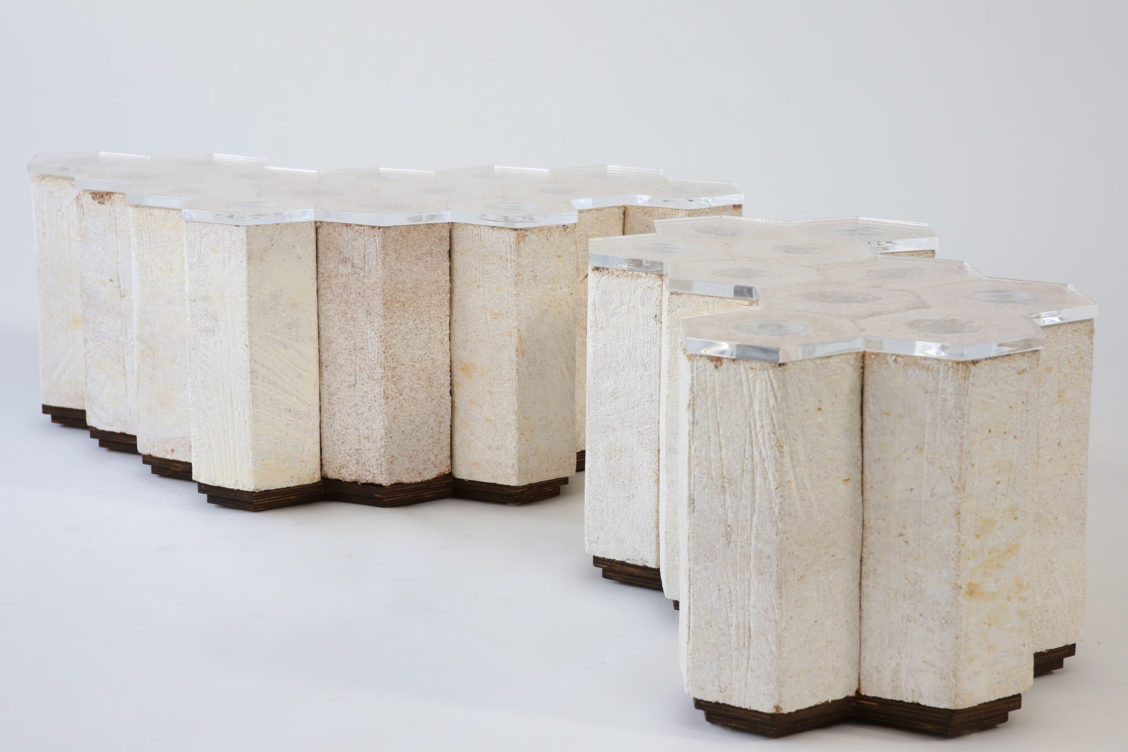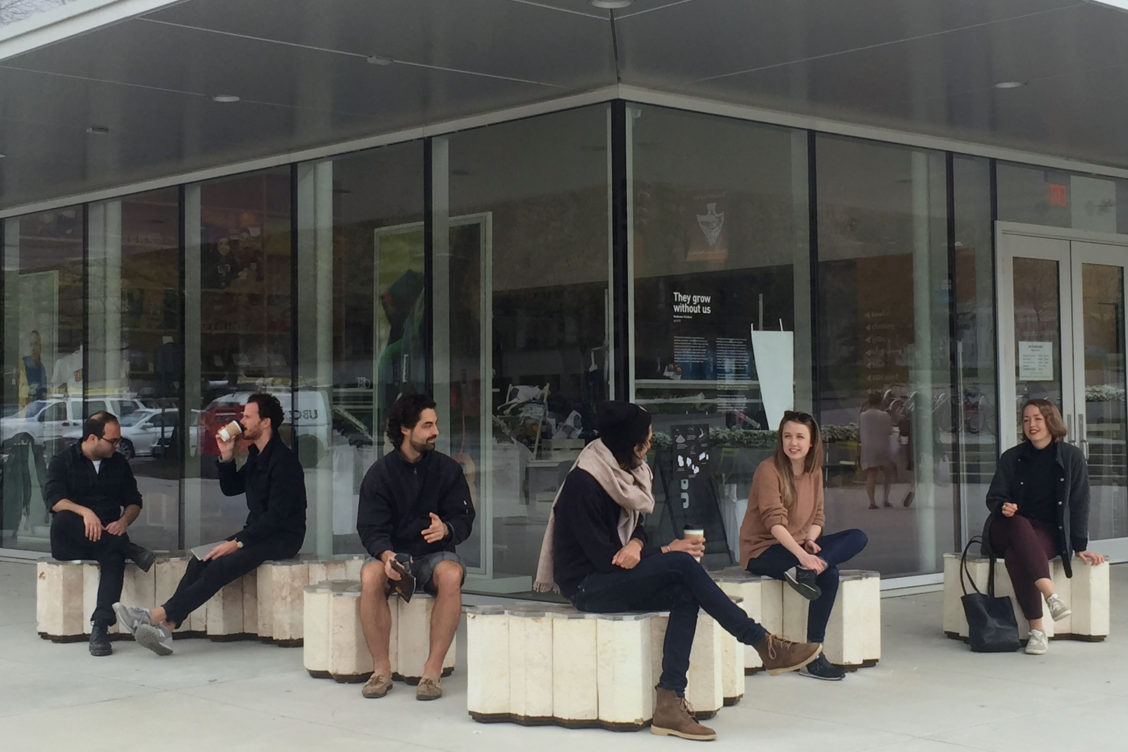First known architecture scale installation of mycelium biocomposites in Canada.
Joseph Dahmen’s research addresses the next great challenge in sustainable architecture: reducing the ecological impacts of architectural materials. Globally, the built fabric consumes as much as forty percent of all resources. Gaining control over these impacts requires expanding the definition of architectural design to include material innovation. In this expanded view, design plays a catalytic role in addressing the entire life cycle of architectural materials, from upstream material manufacturing to the design of new architectural forms, construction methods, and end-of-life considerations. This integrated approach to design will contribute to the foundation of an ecologically sound future architecture.

His research focuses on design methods for regionally specific, emergent sustainable materials such as site-specific alkali-activated masonry and locally grown mushroom-based biocomposites. These materials offer lower embodied impacts than the environmentally intensive legacy materials they replace, and are capable of building positive relationships with local ecosystems throughout the entire life cycle of architecture. They support more nuanced relationships with natural and hybrid ecologies while reducing or even reversing ecological impacts. No less significantly, novel methods of utilizing local materials, which draw on smart manufacturing and biotechnological paradigms, provide architects and landscape architects with new formal possibilities and avenues of expression.

His projects include mycelium biocomposite furniture installed in front of the UBC bookstore, and design for a mushroom-based composting toilet for refugee camps that was awarded the Top Prize at the BioDesign Challenge at the Museum of Modern Art in New York.
